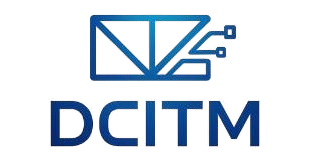Artificial Intelligence (AI) is redefining the foundations of software and web engineering—accelerating workflows, automating repetitive processes, and transforming how developers build and maintain systems. By 2025, nearly 85% of developers are using AI-powered tools, driving dramatic gains in productivity while igniting debates over job displacement and declining craftsmanship. Drawing from research, academic findings, and developer community insights, this article unpacks how AI is reshaping the field—spotlighting both its advantages and the challenges ahead.
Key Shifts and Impacts
AI’s integration into engineering has reshaped every stage of development—from writing and debugging code to deployment and design—changing both software and web practices at their core.
1. Productivity Boost and Process Optimization
AI assistants like GitHub Copilot have revolutionized coding by speeding up development, debugging, and code refinement, enabling faster product releases. In web development, AI accelerates wireframing, UI customization, and design iteration—reducing project timelines by as much as 25%. Yet, data suggests mixed results: studies in mid-2025 found that experienced engineers using AI sometimes spent 19% more time completing tasks, suggesting that productivity gains depend heavily on skill level and workflow integration.
2. Automation of Repetitive Work
Routine tasks—basic scripting, testing, and content generation—are increasingly automated, freeing engineers to focus on higher-level architecture and innovation. In web contexts, AI enhances UI/UX personalization and proposal generation, though it introduces new ethical challenges related to algorithmic bias and fairness.
3. Job Market and Skill Evolution
AI could replace up to half of entry-level software roles within the next five years. Traditional coding jobs are giving way to roles centered on system architecture, AI governance, and interdisciplinary collaboration. While automation helps newcomers handle complex projects faster, it also diminishes the premium on deep, hard-earned expertise. Web developers must now align their skills with AI-driven trends such as dynamic, interactive interfaces and adaptive design systems.
4. Creativity Amplified, Not Replaced
AI acts as a creative amplifier—enhancing human potential by handling the “how” of development, allowing engineers to focus on the “what” and “why.” For web teams, this enables scalable frameworks and seamless blockchain or API integrations. However, overreliance on AI risks hollowing out core problem-solving abilities, leading developers to depend on systems they no longer fully understand.
5. Integration Challenges and Ethical Risks
While 97% of engineers now use AI regularly, only 60% express strong approval, citing hiring instability, compliance issues, and ethical uncertainties. Biased AI-generated code and intellectual property conflicts are expected to increase industry disputes by 30% by 2028 unless clearer standards emerge.
Contrasting Perspectives
Industry voices—from tech leaders to skeptics—paint a diverse picture of AI’s impact, ranging from transformational optimism to existential concern.
Optimistic Views (Innovators and Tech Executives)
Advocates argue that AI enhances efficiency across 25% of technical roles, making engineers more like system architects and AI orchestrators. Entry-level coders can now contribute meaningfully to advanced projects thanks to AI-driven support. Thought leaders such as @0xMert_ and @jero_lmao highlight AI’s role in accelerating creativity, innovation, and team performance. Studies further show that companies adopting AI-driven development pipelines see higher returns on innovation and faster go-to-market cycles.
Critical Views (Ethicists and Experienced Engineers)
Skeptics warn that AI disproportionately affects early-career professionals—automating entry-level work and shrinking pathways for skill growth. @svpino predicts rising intelligence thresholds for employment, while @gokulr notes that intermediate-level engineers may surpass veterans as experience becomes less valuable than adaptability. Critics such as @al_fulani_ argue that software engineers face the greatest displacement risk, while @rayXtwt suggests AI will dominate routine-to-mid-level programming, leaving only complex system challenges for humans. Ethical concerns include biased outputs, diminished job security, and weakened fundamentals as AI bypasses traditional learning.
Pragmatic and Advisory Voices
Experts like @darey_io and @sriniously emphasize adaptation: engineers must evolve alongside AI, mastering new tools and embracing hybrid roles that blend backend, infrastructure, and cybersecurity. Non-coding roles remain stable, but traditional coding proficiency alone is becoming insufficient. Analysts from DORA and Forrester note that the most successful AI integrations occur in regulated industries where ethical and procedural safeguards are built into workflows. @kunalbhusare points to job saturation and rising competition as evidence of AI compressing opportunities.
Academic and Industry Insights
Studies from Harvard indicate that AI reduces managerial oversight by 10%, redistributing influence toward technical skill rather than seniority. Research from CMU and Stanford’s AI Index confirms measurable productivity gains, though scholars stress that AI transforms engineers—it doesn’t eliminate them. Web-focused studies highlight immense creative potential tempered by persistent ethical and regulatory challenges.
Future Outlook and Barriers Ahead
By 2026, AI could make software engineering nearly unrecognizable—autonomous systems may manage full-stack development pipelines, potentially displacing 100 million jobs within a decade. Major hurdles include regulatory compliance, accuracy assurance, and maintaining human control over automated outputs.
To thrive in this new environment, organizations and developers must:
- Implement AI impact assessments to evaluate risks and performance.
- Adopt ethical coding frameworks to prevent bias and misuse.
- Evolve development lifecycles to integrate human oversight in AI operations.
- Invest in continuous learning—balancing technical fluency with strategic thinking.
Distributed skill sets and cross-disciplinary collaboration will define the next generation of developers—those who act not just as coders, but as strategic system integrators bridging human insight and machine precision.
Conclusion
AI is ushering in a new era of creativity and efficiency in software and web engineering—but success will depend on how effectively professionals adapt. The future belongs to developers who balance automation with artistry, using AI not as a crutch but as a catalyst. Those who master this balance will not just survive the AI transition—they’ll lead it.
References
University of California, Davis. (2024). Unraveling the Social Impacts of Artificial Intelligence. https://research.ucdavis.edu/unraveling-the-social-impacts-of-artificial-intelligence/
Stack Overflow. (2025). Stack Overflow Developer Survey 2025: AI. https://survey.stackoverflow.co/2025/ai
Reuters. (2025). Bootcamp Bust: How AI Is Upending the Software Development Industry. https://www.reuters.com/lifestyle/bootcamp-bust-how-ai-is-upending-software-development-industry-2025-08-09/
JetBrains. (2025). The Future of AI in Software Development. https://blog.jetbrains.com/ai/2025/07/the-future-of-ai-in-software-development/
ResearchGate. (2024). The Impact of AI on Web Development. https://www.researchgate.net/publication/383866997_The_Impact_of_AI_on_Web_Development
